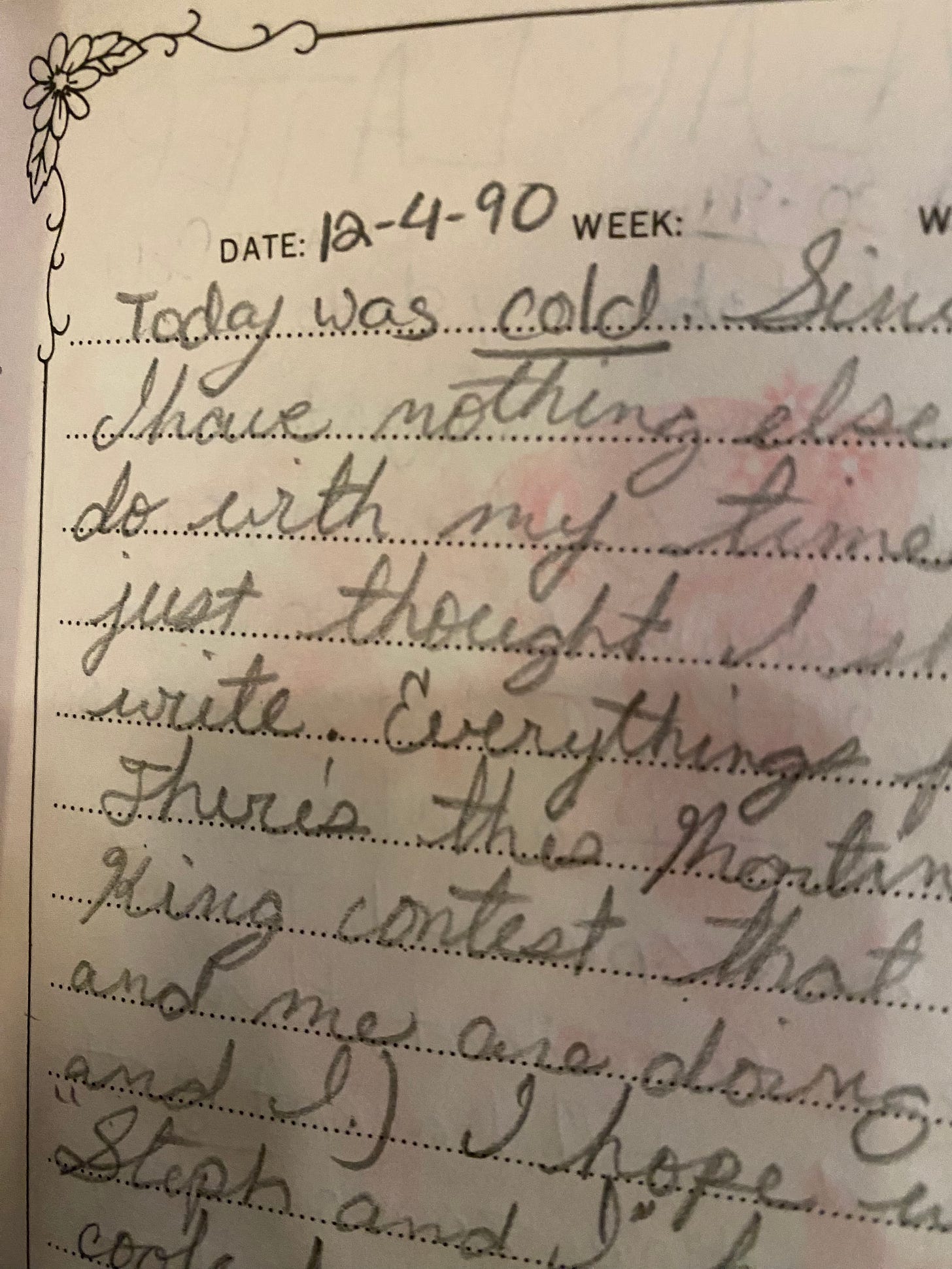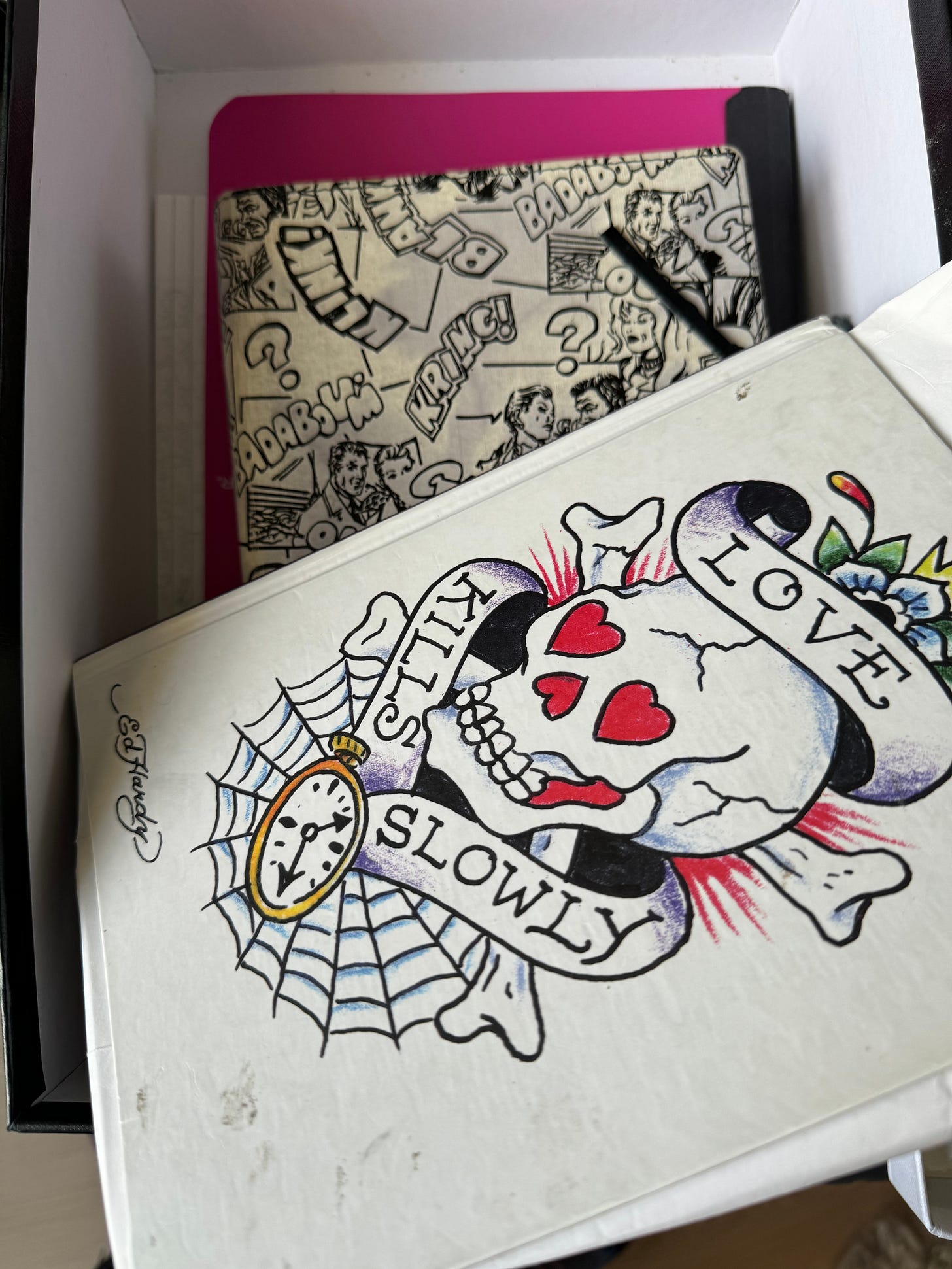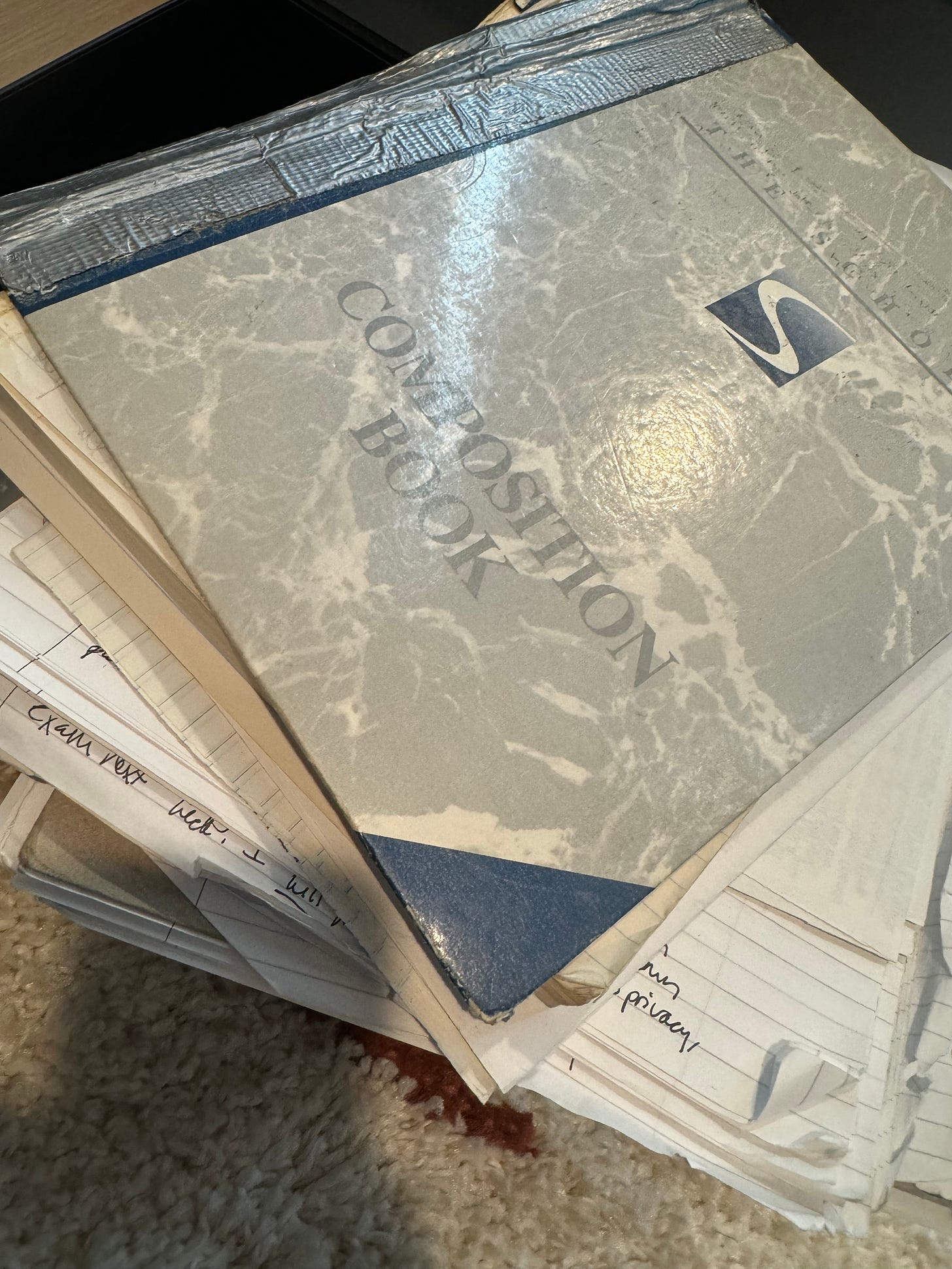Rituals: How I maintain a journaling practice
Write on impulse, record the present, learn from the past, and track your growth
Journaling for me has never been a woo-woo practice or a required kickstart to my work day.
But over the years, it has indeed become my outlet, my “form of meditation” if you will, because meditation has not always come easy for me.
After I journal, I experience accomplishment, peace, and release, not too dissimilar to the endorphins and sense of achievement I feel after finishing a long walk or run outdoors.
Content entrepreneur | Agency Founder & CEO | Author | Featured in Forbes, Wall Street Journal, Business Insider, Cheddar TV, HuffPost
Join more than 2,500 people who follow Shindy for discerning lifestyle and business advice:
As a published author and writer, I have also always felt more inclined to write things down than from any other attempt to get back to center.
Whether as an introvert or due to my cultural learnings, I’ve been guilty of holding my tongue and staying silent about my feelings, being “nice,” polite, and too people-pleasing. This resulted in unhealthy passive aggressive behavior and wasted time over things left unsaid, inferred, and implied.
Though I’ve now acknowledged and am working on these behaviors with my therapist, my journal was my only outlet before more maturity, self awareness, and growth.
Today, I’m getting better at speaking up and expressing my feelings out loud, but I haven’t lost my journaling practice.
And, reading previous entries has helped me realize my strength and progress over the years.
Because journaling as a practice has helped me so much, I’d like to share how it can be one of the many ways you can achieve more mental clarity and peace.
Here’s how I started and stick to journaling.
How I started journaling
I’ve been unintentionally journaling most of my life.
This began the same way it may have started for many young girls, when you were given a diary.
Mine was powder blue, smelled like soap (which lingers to this day), and came with a small lock.
As I grew into a young woman, I continued writing, using an assortment of lined notebooks and moleskin journals.
I found nothing more suitably helped me to release stress than writing things down longhand. I kept journals through high school, college, marriage, divorce, businesses, and relationships.
Before you start, remember, there’s no right or wrong way to journal.
Length doesn’t matter
5 minutes or an hour, a couple of sentences or 1,000 words – it’s up to you.
You decide what works for you. I do my best at a daily “5 minute” gratitude journal, which is usually just a couple of sentences, on top of regular, longer journaling.
Write when you feel it, not as a chore
There are daily tools, reminders, and apps that can nudge you to journal, but I feel journaling is most effective only when it calls me; when I feel the impulse to journal, have a lot on my mind, or want to get things off my chest.
Only when you write on impulse does it feel more cathartic and releasing; less like work or “something you have to do,” or worse, something you feel bad about if you don’t.
All it takes is a quiet place free from distractions.
More often than not, I’ve journaled on planes probably because they offer an opportunity of prolonged quiet and focus.
I vividly remember journaling on my flight back from a college study abroad program in London, to more recently in August, when I was on a plane from Vancouver to L.A.
Prompts or forced periods of focus can help
Sometimes prompts are good. For example, “What’s going on?” “How are you feeling?” “What’s making you happy?” “What are you doing?” “Who’s making you happy?” “Are you frustrated about something? If so, why?” “What are you proud about right now?” “Is there something you feel bad about, and why?”
Sometimes it takes a forced focus period (like a Pomodoro timer) or even a retreat or vacation to make you reflect.
Whatever the method, remember that your journal is the only way you can hold a mirror to how you are feeling in this moment – there will never be another, better opportunity to capture your present thoughts.
Sure, photos help serve as visual souvenirs, but only your journal serves as your visceral memento.
Paper vs. digital: How to keep your journal secure
Imagine baring your soul, disclosing your deepest, darkest secrets about yourself and the ones you love or hate, and being at your most vulnerable in your journal.
And then imagine your privacy and that safe space being violated.
I wrote in longhand and kept paper journals until 2012, when an ex-boyfriend decided to not only read all of my journals, but also felt entitled enough to annotate them with sticky notes. I removed them.
Of course, I was mortified. That relationship ultimately imploded out of trust and infidelity issues on both sides.
Afterward, I started journaling in password-protected Word Docs, which I back up regularly in the cloud.
This way, I can access it from mostly anywhere and it’s safe from prying eyes.
Whatever method you prefer, just be mindful that unless you trust someone to not access your innermost thoughts that border on the subconscious, then you’ll have to do your best to avoid a pretty devastating event. (Here’s how to password protect a Word document.)
If you choose to keep a journal in a Google Doc format, then just know it will be part of your Google Drive, and anyone who has access to your Google files will be able to access your entries.
So be mindful of where you’re logged in to your Gmail and Google accounts, including whether you have the Google Docs app on your phone.
Here’s what I learned from more than 2 decades of journaling
As a project during a recent holiday break, I re-read my journals from 2011 to present, front-to-back, and learned some hard truths:
How much I bent over backwards to make others happy
How naive I was about having children; how I assumed it would be easy, and that the option to do so would always be there
How scared I was in relationships with the wrong people, and constantly thought it was my fault when things went wrong; how much I was constantly gaslit by a total narcissist
How much I complained about outward influences but didn't do enough about changing my own circumstances; all along I had free will
Lastly, how strong I am to have experienced layoffs, firings, having virtually no cash, finding my own place (and fast) after a bad breakup, changing careers, being cheated on, yet always getting back up and persevering
For me, and possibly for you too, journaling is about recording the present and ultimately learning from experiences. One day, you’ll amaze yourself at seeing what you’ve manifested and how far you’ve grown.
Give it a shot.
**
Until next time,
Shindy
On Instagram + TikTok
***
Did you enjoy this newsletter?
Please like it by clicking on the heart at the very top or bottom of this post, or share it with you someone you think would find value in it. 🙏









